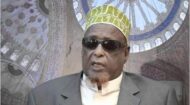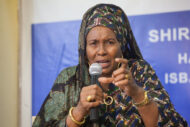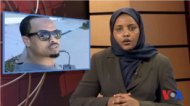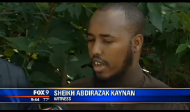Economic citizenship programmes in Dominica and St Kitts and Nevis make them among fastest growing immigration destinations for United Arab Emirates residents.
DUBAI: Hundreds of UAE residents are investing up to Dh1.4 million inCaribbean island states in return for citizenship.
The expatriate businessmen from countries such as Syria and Iran are becoming citizens of Dominica and St Kitts and Nevis to overcome restrictions imposed on their home countries.
Citizens of those islands are exempt from visa requirements in as many as 140 countries.
“Caribbean islands have a history of offering their citizenship against donations in government welfare funds,” said Imran Farooq, chief executive of Premiers, a consultancy in Dubai that handles about 150 applications a year to St Kitts and Nevis.
“More people are taking citizenships in the Caribbean so if their country is under sanction, they can have options. Once they see the value that they can travel freely to various parts of the world, most of these are legitimate businessmen, they take up this option.
“St Kitts and Nevis has been very popular among Iranians, Russians, Pakistanis, Egyptians, Jordanians and Syrians.” In this region, 65 per cent of applicants are Iranians, Mr Farooq said.
Only those who live outside Iran are eligible. St Kitts and Nevis suspended its programme for Iranians living in Iran last year.
A single applicant for St Kitts and Nevis will have to invest $250,000, or nearly Dh1m, in the country`s Sugar Industry Diversification Foundation.
Another option is the Citizenship by Investment Programme, which requires applicants to invest at least $400,000 in property.
The fees may increase depending on the size of the family and age of applicants. Costs for a family of four can reach $600,000.
In Dominica, a single applicant pays $140,000. Passports for a couple and two children under 18 cost at least $235,000. Additional fees are levied for background checks.
“If you are really getting a second passport, it is not a good sign,” said Badie, 38, a Syrian businessman in Dubai who has applied for a Dominican passport.
“A year ago I would not have thought of doing this. I applied out of desperation. I have to travel extensively in the Gulf for my business.
“Saudi Arabia and Kuwait have banned Syrians from entering. I am afraid it could have a domino effect and other countries may also ban us. I want this for my business and as a matter of security.”
Mr Badie hopes to have his new passport in six months, but will not live inDominica.
Alex Woodley, consul general at he newly-opened St Kitts and Nevis consulate in Dubai, said: “Most of our applicants are not just citizens from displaced nations. They are not from one region or country. Participants are from many stable countries.
“There is a significant denial rate. St Kitts and Nevis has a stringent due diligence policy including engaging specialists to check the identity of applicants and make sure no applicant brings disrepute.”
A Dubai property firm has sent text messages to residents promising citizenship in St Kitts and Nevis through investments.
“We provide them a vehicle for investment but it is the government who will sign off on whether they can accept it or not,” said Munaf Ali, chief executive of Range Developments, developer of the Park Hyatt St Kitts and Nevis.
“We provide this to genuine people who have a good background and aren`t involved in any criminal activities. We take an initial deposit of 10 per cent. Once the government approves their application, then we take the full amount. It takes three months from start to finish.”
Mr Ali said the ease of visa access made St Kitts and Nevis attractive.
“A citizen wants to become global and have borderless travel. People are becoming richer and would like to travel more. They don`t like these barriers to entry. And businessmen would like to have the luxury to travel visa-free.”

 All Posts
All Posts










